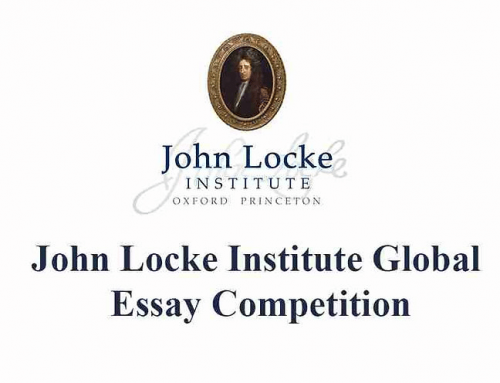One of the fundamental components of your IB diploma is the Extended Essay (EE). The IB EE is basically an independent and self-directed research piece that concludes with a 4,000-word paper. It is mandatory for all students who are taking the International Baccalaureate (IB) Diploma Programme (DP). Because EE is a core component of the IB DP, it is important for you to do an excellent job while writing it. Otherwise, all your efforts will go in vain.
However, writing the IB EE is not a piece of cake. Given the number of criteria for writing an exceptional extended essay, this task can be extremely overwhelming and many students often end up with mediocre or half-baked essays because they fail to follow the standards. In this article, we discuss three of the most common mistakes you should avoid when writing your IB EE, so you can have an efficient writing process and achieve a better grade.
Not understanding every element of the IB EE
To be able to come up with an excellent extended essay, you need to have a good understanding of each element of your paper. First off, it is important for you to understand that the IB EE is a research essay, not a descriptive or narrative essay. Hence, your EE should have a hypothesis that is argued effectively. The hypothesis is basically the statement of expectation or prediction that your research will test and determine.
Here are the other integral elements of the IB EE that you should understand and focus on:
Title
The title is the very first thing that the examiner sees in your paper. Hence, it is a critical part of your essay. A good title is essentially relevant and concise and should not be finalised until the outline of your essay has been determined. Usually, a title in question form is not recommended.
Abstract
Many students write their abstracts poorly because they do not understand what this part is all about. The abstract is basically a summary of your whole essay written in a maximum of 300-word. It is not an introduction to your EE. An abstract is considered good when it is clear, concise, and comprehensive. It should be completed at the end of your writing process.
Introduction
The introduction is an essential part of your research essay and must include your research question, statement of purpose, or hypothesis. The purpose of your research should be stated and explained in the introduction. It should provide relevant background information as well as a description of your essay’s “problem,” which is the basis for intellectual debate or scientific enquiries.
Body of Essay
The body of the essay is the longest and most necessary part of your IB EE. It is important to develop and substantiate your arguments in your essay’s body. It must focus on proving or disproving the hypothesis and should avoid irrelevant descriptive and anecdotal discussions.
Conclusion
The conclusion is the final part of your essay to wrap up all your points and arguments. You are required to write an effective conclusion that summarises the findings of your research. This effectively wraps up your essay with any final concluding statements.
Following the wrong schedule for writing the IB EE
Many students come up with half-baked extended essays because they procrastinate and cram their papers. They wait for some kind of inspiration before they start writing. However, in reality, there is no such thing as having the right inspiration for writing your extended essay. Waiting will only lead you to cram your paper and write a mediocre IB EE.
To make sure your essay passes the standard, you need to begin writing it early and step by step. Start by making a rough outline and consulting your tutor about your desired direction for your paper. Then, write the first draft and share it with your tutor. Make the necessary edits and have it reviewed again by your tutor afterwards. Have your EE checked and edited several times until you are already satisfied with the result. Finally, submit it knowing that you have put careful thought into every aspect of your work.
Failing to reference all the sources properly
Citation is very important in research, and you should not forget to do it right when writing your IB EE. As an IB student, it is your responsibility to acknowledge all the sources you use in every work you submit to IB for assessment, including all of it properly in your essay. If you use the work or idea of another person, you must acknowledge them in your EE using a standard referencing style in a consistent manner. Failure to do is usually considered plagiarism and intellectual dishonesty.
Here are the common criteria should you should apply when referencing your sources:
- Acknowledge all the sources you used in your paper.
- Consistently use a standard referencing style in order for all the sources you used to be credited, including the sources you have summarised or paraphrased.
- Clearly differentiate your own words and those of others by using quotation marks or other methods like indentation followed by a proper citation.
- Regardless of the referencing style you adopted, you need to include in your citation the minimum information used by all styles, including the author’s name, publication date, title of the source, page numbers, access date, and URL.
Take note also that while you may use footnotes and endnotes for referencing purposes, they are not included in the word count of your essay. If your footnote or endnote contains information that is not a reference, it will be included in your word count. Hence, in order to prevent confusion or unwittingly going beyond the word limit, avoid using footnotes or endnotes as much as possible, unless it is for referencing purposes.
Conclusion
The importance of the IB EE is unquestionable. But more than just for the academic grades, doing well in your IB EE will enable you to develop a variety of skills, including research, communication, creativity, and critical thinking. As a student of the IB DP, it is your responsibility to make sure your research essay follows the standard of intellectual excellence.
To avoid writing a mediocre extended essay, you may need the guidance of professional tutors who are fully familiar with the IB syllabus. Here at Quintessential Education, we have seasoned, skilled, and knowledgeable tutors who will support and assist you in achieving your goals throughout your IB journey. We offer a variety of tuition classes, including IB chemistry tuition, mathematics tuition, economics tuition, and a lot more.
Additionally, we also have excellent IGCSE tutors in Singapore for those who are taking the IGCSE curriculum. To learn more about how we can help you improve your grades, feel free to reach out to us today by sending an enquiry to enquiries@qeducation.sg.




